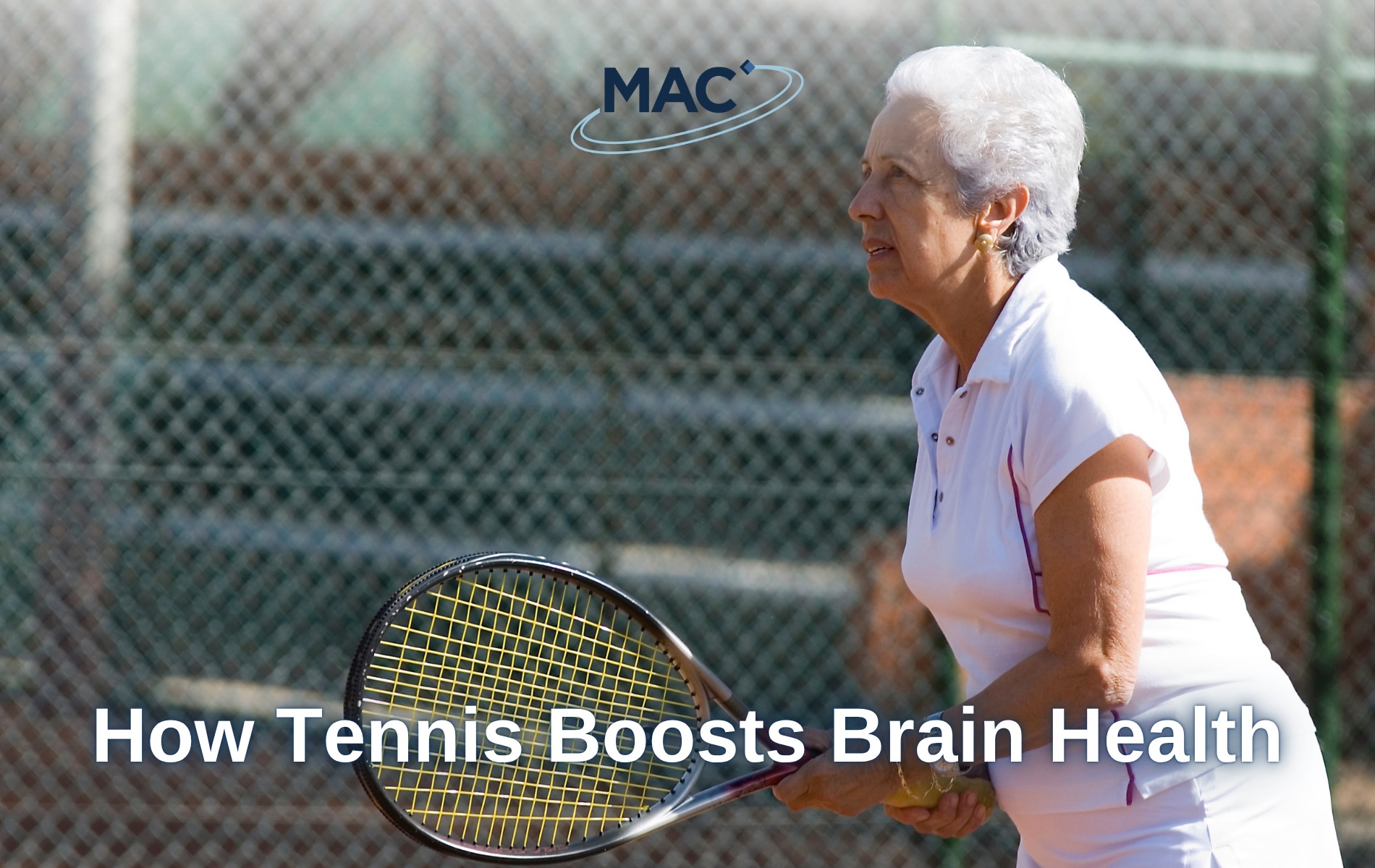As Wimbledon wraps up another thrilling two weeks of world-class tennis, it’s the perfect opportunity to reflect on the sport’s profound benefits for the brain.
Beyond the physical fitness and social joy that it brings, tennis is increasingly recognised as a powerful tool in the fight against cognitive decline and dementia.
The Brain-Boosting Power of Tennis
Tennis is more than rallying and serving, it’s a full-body, full-brain workout. The sport demands rapid decision-making, strategic thinking, hand-eye coordination, and constant adaptation. Research has found that tennis players show greater accuracy in time estimation tasks, potentially due to a stronger ability to anticipate and predict the timing of events1.
These cognitive challenges stimulate the brain’s executive functions, particularly in the prefrontal cortex, which governs planning, attention, and problem-solving.
Studies show that regular participation in cognitively engaging sports like tennis can significantly enhance memory, processing speed, and reaction time in older adults. One study comparing long-term tennis players with those who engaged in less cognitively demanding exercises (like walking or swimming) found that tennis players had faster reaction times and better cognitive flexibility2.
Tennis and Dementia Prevention
Dementia, including Alzheimer’s disease, is a growing concern; sadly, around 900,000 people in the UK are living with dementia, with this figure projected to rise to 1.6 million by 20403.
While there is currently no cure for dementia, physical activity is one of the most effective ways to reduce the risk. In fact, research has shown that individuals who exercise regularly are up to 20% less likely to develop dementia than those who do not4.
Some studies have suggested that physical activity helps protect the brain at a cellular level, particularly in the hippocampus, the region responsible for memory formation. Exercise was shown to reduce inflammation and improve the function of microglia, the brain’s immune cells, potentially slowing the progression of Alzheimer’s5.
Moreover, tennis encourages neuroplasticity, which is the brain’s ability to form new neural connections. This is especially important in aging populations, as it helps maintain cognitive function and delay the onset of memory-related diseases.
Social and Emotional Benefits
Tennis is also an incredibly social sport. Whether played in doubles, at social tennis events, or as part of a local club, it fosters community, reduces isolation, and boosts emotional wellbeing. These social interactions are themselves protective against cognitive decline, as social isolation can make individuals 26% more likely to develop dementia6.
A Sport for All Ages
One of tennis’s greatest strengths is its accessibility. It can be played at any age and adapted to suit different fitness levels. From casual rallies to competitive matches, the sport offers a sustainable and enjoyable way to stay mentally and physically active well into later life.
Free Memory Tests
Did you know that MAC Clinical Research proudly provide free memory tests for over 50’s to the local communities in Lancashire, Merseyside, South Staffordshire, South Yorkshire, Teesside, and West Yorkshire.
At MAC Clinical Research, individuals attending the memory clinic can benefit from:
- An appointment within four weeks with the specialist team who are registered Dementia Friends
- Assessment and discussion of memory concerns in a relaxed friendly environment
- Explanation of the results of the assessment
- Liaison with their GP
- Ongoing memory reviews where needed
- Opportunity to access potential new treatments via clinical trials
If you are over 50 years old and have concerns about your memory, visit our Memory Assessment Research clinic’s webpage for more information and to register for a free memory test.
1 Frontiers in Human Neuroscience – Intention understanding over T: a neuroimaging study on shared representations and tennis return predictions
2 Edith Cowan University – Effects of long-term participation in tennis on cognitive function in elderly individuals
3 Alzheimer’s Research UK – INTRODUCTION TO THE DEMENTIA STATISTICS HUB
4 Alzheimer’s Society – Physical activity and the risk of dementia
5 Nature Neuroscience – Protective exercise responses in the dentate gyrus of Alzheimer’s disease mouse model revealed with single-nucleus RNA-sequencing
6 Alzheimer’s Research UK – Social isolation linked to lower brain volume and higher dementia risk




